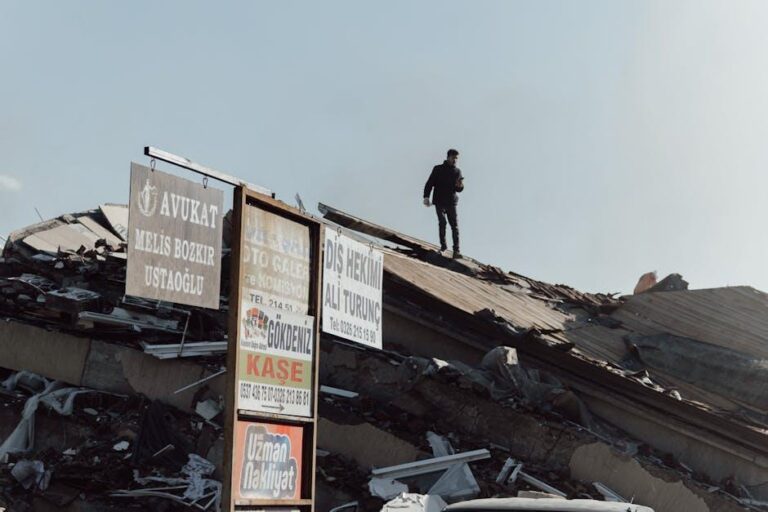
How to Handle Common Dental Emergencies During the Holiday Rush – HealthTechzone
The holiday season brings joy, gatherings, and delicious treats—but it can also be a time when unexpected dental emergencies strike. Between festive meals, travel, and busy schedules, dental problems may catch you off guard. Knowing how to handle common dental emergencies during the holiday rush can save you pain, avoid costly treatments, and preserve your smile. This comprehensive guide from HealthTechzone provides practical advice, first aid tips, and expert insights so you’re well-prepared no matter what dental mishap comes your way.
Why Dental Emergencies Spike During the Holidays
During the holiday season, several factors contribute to an increased risk of dental emergencies:
- Increased consumption of hard or sticky foods: Nuts, candies, and festive meals can cause tooth damage or dislodge dental work.
- Changes in routine: Disrupted schedules might delay regular oral hygiene practices.
- Travel and stress: Traveling long distances or holiday stress can lower immunity, increasing risk for gum infections or exacerbate existing dental issues.
- Limited access to dental care: Many dental clinics operate on reduced hours or close entirely, complicating access to urgent care.
Common Dental Emergencies and How to Handle Them
1. Toothache
Sharp or persistent tooth pain during the holidays can spoil your celebration, but immediate care can ease discomfort.
- Immediate Action: Rinse mouth with warm water and gently floss to remove debris.
- Temporary Relief: Use over-the-counter pain medication and apply a cold compress to reduce swelling.
- When to Seek Help: If pain persists beyond 24 hours or is accompanied by fever or swelling, contact your emergency dentist immediately.
2. Knocked-Out Tooth
Losing a tooth due to an accident or fall requires quick action to increase chances of saving it.
- Pick the tooth up by the crown, avoiding the root.
- Rinse gently in saline or milk—do not scrub or dry it.
- If possible, place it back into the socket or keep it submerged in milk or saliva.
- Visit an emergency dentist within 1 hour for best chance of reimplantation.
3. Broken or Chipped Teeth
Cracked or chipped teeth from biting hard foods or accidents can cause pain and sensitivity.
- Save any broken pieces and rinse mouth with warm water.
- Apply a cold compress to reduce swelling.
- Cover sharp edges temporarily with dental wax or sugarless gum to protect your tongue and cheek.
- Book an emergency dental appointment promptly.
4. Lost Dental Filling or Crown
Lost fillings or crowns can expose sensitive areas and cause discomfort.
- Retrieve the crown or filling and rinse it with warm water.
- Try to re-seat the crown gently if possible; use dental cement or sugarless gum as temporary adhesive.
- Avoid chewing on that side until professional dental care is obtained.
5. Soft Tissue Injuries (Tongue, Gums, Lips)
Holiday accidents can lead to cuts or bruises inside your mouth.
- Rinse with mild salt water to clean the area.
- Apply gentle pressure with gauze or a clean cloth to stop any bleeding.
- Use cold compresses to minimize swelling and numb pain.
- Seek dental help if bleeding persists or wounds are deep.
Practical Tips to Prevent Dental Emergencies During Holidays
Prevention is the best way to avoid holiday dental emergencies. Here are some strategies to protect your teeth and gums:
- Stick to regular oral hygiene: Brush twice daily and floss to prevent plaque buildup and infection.
- Avoid biting hard or frozen foods: Nuts, ice, and hard candy can crack teeth or dislodge dental work.
- Limit sugary and sticky treats: Excess sugar fuels bacteria, causing decay and irritation.
- Use a mouthguard: If participating in winter sports or physical activities, protect your teeth from trauma.
- Stay hydrated: Drink plenty of water to keep saliva flowing and neutralize acids.
- Keep emergency dental contacts handy: Research dentists offering 24/7 or holiday emergency care in advance.
Table: Quick Guide to Common Dental Emergencies and First Aid
| Dental Emergency | First Aid Steps | When to See Emergency Dentist |
|---|---|---|
| Toothache | Rinse mouth, take painkillers, cold compress | If pain lasts >24 hours or with fever/swelling |
| Knocked-Out Tooth | Handle by crown, rinse gently, keep moist | Within 1 hour for best outcome |
| Broken/Chipped Tooth | Save pieces, rinse, protect sharp edges | As soon as possible |
| Lost Filling/Crown | Retrieve filling/crown, use temporary adhesive | Promptly to prevent decay & sensitivity |
| Soft Tissue Injury | Rinse, apply pressure, ice pack | If bleeding persists or wound is deep |
What to Expect at the Emergency Dentist
During the busy holiday period, emergency dentists focus on relieving pain, preventing infection, and stabilizing damaged teeth quickly. Services you can expect include:
- Digital X-rays to assess tooth and bone damage.
- Pain management with medications or local anesthesia.
- Temporary or permanent restorations (fillings, crowns, bonding).
- Root canal treatments or extractions if necessary.
- Referral to specialists for complex cases.
Always communicate clearly about your symptoms, previous dental work, and any medical conditions for personalized care.
Firsthand Experience: Holiday Emergency Saved by Quick Action
Emily, a busy mom, once chipped her front tooth while opening a festive cookie jar. By following these tips—rinsing, applying dental wax to prevent discomfort, and promptly visiting her dentist despite holiday closures—she avoided major complications and kept her smile intact. “Being prepared made all the difference,” she says. “It stopped the emergency from ruining my whole holiday.”
Conclusion
Dental emergencies during the holiday rush can be disruptive and painful, but with the right knowledge and preparation, you can handle them calmly and efficiently. By understanding common issues like toothaches, broken teeth, and lost fillings, and knowing the practical first aid steps and when to seek expert help, you safeguard your oral health even amid festive chaos. Remember to prioritize prevention with good oral hygiene, cautious eating, and having emergency contacts ready. Enjoy your holidays with confidence—and a healthy, bright smile!
Stay safe, stay prepared, and don’t let dental emergencies spoil your celebrations!


